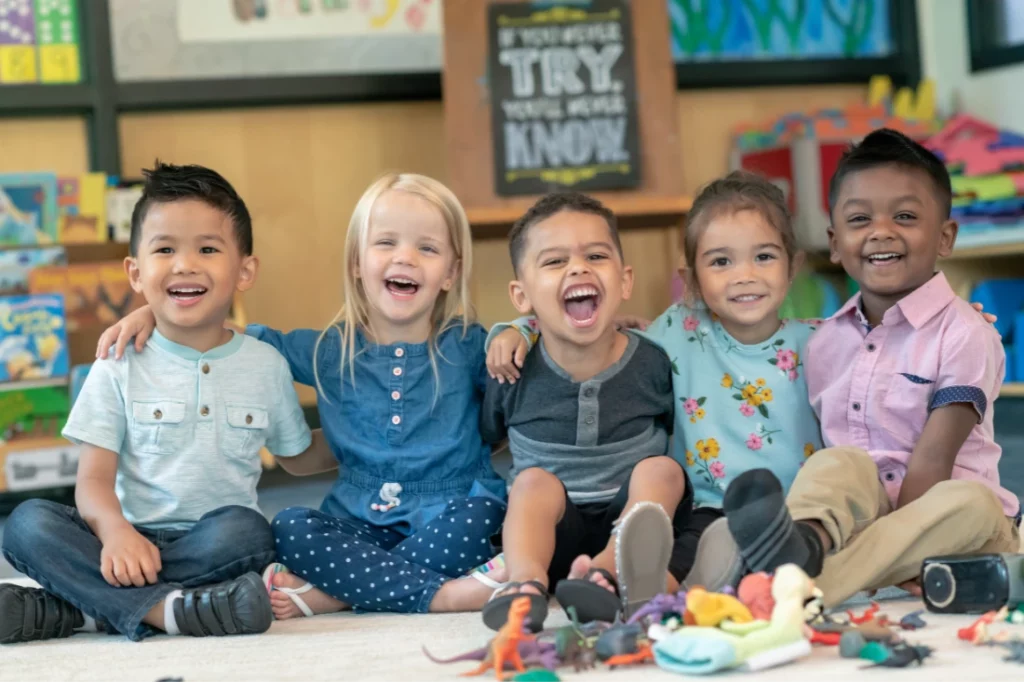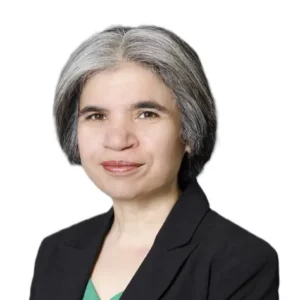– Services –
Pre-School for Neurodivergent children (Children with Autism and other disorders)

Service Overview
The Early Intervention Program for Infants and Young Children (EIPIC) is specially designed for children from 18 months to 6 years old, diagnosed with Autism Spectrum Disorder and/or other developmental disabilities. It includes an individualized program for your child using the Early Start Denver Model (ESDM).
EIPIC program is run by a team of Behavior Consultants, Occupational Therapists, Speech-Language Pathologist and Behavior Interventionist.
Focus Areas
The first 6 years of life are marked by a period of remarkable brain growth. The average size of a child’s brain reaches about 90% of adult brain size before the age of five.These early years offer a tremendous opportunity for parents to shape and maximise brain development and lay down the best foundations for future success.
Symbiosis EIPIC program is specially designed to develop the most important pre-academic cognitive brain skills during these early years.
Here are a handful of other examples of these critical pre-academic skills which we aim to develop in your child.
Facilitating expressive and receptive communication. Our focus is on building a strong foundation for language development, enabling children to express themselves and engage with the world around them
Stimulating cognitive development and perceptual abilities, providing children with the mental tools necessary for effective problem-solving, critical thinking, and successful learning experiences
Fostering positive social interactions and play, building crucial relationship foundations that contribute to a child's social development, both in and outside structured environments
Enhancing coordination and sensory awareness through targeted activities, promoting a robust mind-body connection that contributes to improved motor skills and overall sensory integration
Nurturing independence in daily activities, empowering children to develop essential self-help skills that foster confidence and autonomy, setting the stage for a more self-sufficient life
Cultivating a strong foundation in Emotional Regulation, guiding children to understand and manage emotions effectively, laying the groundwork for a resilient and emotionally healthy future
Facilitating expressive and receptive communication. Our focus is on building a strong foundation for language development, enabling children to express themselves and engage with the world around them
Stimulating cognitive development and perceptual abilities, providing children with the mental tools necessary for effective problem-solving, critical thinking, and successful learning experiences
Fostering positive social interactions and play, building crucial relationship foundations that contribute to a child's social development, both in and outside structured environments
Enhancing coordination and sensory awareness through targeted activities, promoting a robust mind-body connection that contributes to improved motor skills and overall sensory integration
Nurturing independence in daily activities, empowering children to develop essential self-help skills that foster confidence and autonomy, setting the stage for a more self-sufficient life
Cultivating a strong foundation in Emotional Regulation, guiding children to understand and manage emotions effectively, laying the groundwork for a resilient and emotionally healthy future
Curriculum and Schedule
The curriculum is based on Early Start Denver Model (ESDM).
Early Start Denver Model (ESDM) was originally developed by Rogers and colleagues and encourages development in a variety of areas known to be affected in autism.
The Denver Model focuses on creating an effectively warm and rich environment to foster positive relationships between children and adults and approaches language development from a communication science orientation, emphasizing the social function of language (pragmatics) and the development of non-verbal communication and imitation as foundations for verbal language.
Various session times available for clinic-based sessions:
Schedules for EIPIC services are done for a full school year, i.e., September to June. Children can join at any time of the year.
To provide flexibility during the Summer, instead of regular EIPIC sessions, summer camps for children and additional one on one sessions Behavior Intervention sessions are also available.
During the EIPIC programme, children learn in a small group classroom setting, while having an individualised learning plan tailored to each child’s unique needs . Each classroom has four to eight children. This classroom setting allows us to focus on the individualized needs of all the children, and allows them to effectively socialize and learn in a Group Early Intervention Programme-style environment.
Children thrive in a small, focused learning space (2-4 students), fostering effective socialization in a preschool-style environment
Despite the group setting, each child receives a personalized BPI, ensuring learning tailored to their unique style and pace
Goals are consistently monitored and adjusted to match each child’s speed of acquisition and individual learning style
Our Early Intervention Program is designed for infants and young children up to the age of six, providing specialized support and therapy services during the critical developmental years.
The program offers a range of early intervention services, including developmental assessments, individualized therapy sessions, parent education and support, and coordination with other healthcare professionals
Early intervention promotes early development, improves outcomes, and enhances the overall well-being of children and families by addressing developmental delays and challenges as soon as possible.
Home as well as in the community
Home as well as in the community

Book a consultation today, let’s create a customized plan for your child’s growth
Get to know the professionals dedicated to helping your child thrive




Vancouver
Surrey
Langley
Delta
Abbotsford
Burnaby
Chilliwack
New Westminster
Richmond
Coquitlam
Maple Ridge
Mission

Director, Board Certified Behavior Analyst,Occupational Therapist
Shalini is one of the co-founders of Symbiosis Pediatric Therapy. She currently oversees the clinical and administrative departments of Symbiosis. Shalini has more than 25 years of experience working with children with autism and developmental disabilities.
Shalini completed her Master’s degree in Occupational Therapy specializing in Pediatric Neurology in 2000. She also has her Masters degree in Special Education with a focus on Applied Behavior Analysis from The Pennsylvania State University.Shalini is listed in the RASP list as a Behavior Consultant and an Occupational Therapist.
Shalini has extensive clinical experience with assessment and program development that is designed to treat challenging behaviors, build communication, and functional life skills. Some of the team-based intervention which she incorporates are the Applied Behavioral Analysis (ABA), Early Start Denver Model (ESDM), SCERTS, DIR®/Floor time model, etc.
Shalini has trained & supervised several teams of therapists, parents, and other professionals on evidence-based behavioral strategies to improve the quality of life for the children. She also assists with the development and implementation of evidence-based treatment approaches, in addition to providing clinical guidance and mentorship to the Behavioral intervention team.
Shalini is certified to administer the Sensory Integration and Praxis Test (SIPT) from the University of Southern California and in Neuro-Developmental Therapy (NDT) from NDT Association, USA. She also enjoys working with children in Symbiosis embracing different therapy models while viewing the challenges faced by the children through the developmental framework.
Shalini is the mother of two children and understands the importance of considering the needs and wants of all members of the family when establishing therapy goals. She spends her spare time with her children and husband, reading, traveling, and cooking different recipes from around the world.